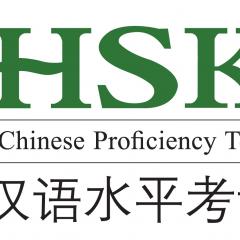The Confucius Institute at The University of Queensland proudly hosted the Joint Conference of Oceanian Confucius Institutes in Brisbane, Queensland on July 9 and 10, 2016. This was the first time for the Confucius Institute at UQ to host such a high-level event. Professor Anton Middelberg, Pro-Vice Chancellor (Research and International) at The University of Queensland welcomed over 60 guests to Brisbane and the conference’s opening event.
Delegates from the 18 Confucius Institutes in the Oceania region as well as special delegates from the Confucius Institute Headquarters (Hanban), Tianjin University and other affiliates, came together to reflect on a number of themes in consideration of the future direction of the Confucius Institutes network.
Key stakeholders in Chinese language learning, including school principals, and leading representatives of the local Chinese ethnic community were also warmly welcomed to the conference as important contributors to Chinese language and cultural understanding. Conference sessions covered a range of pressing topics providing an ideal opportunity for knowledge sharing, exchanging of ideas and perspectives and case studies.
Professor Peter Høj, former Vice-Chancellor and President of The University of Queensland, through his welcome address set the tone for the day reaffirming his commitment to prioritize learning and engagement with China. Professor Høj reiterated the important role that Confucius Institutes play in achieving this objective.


One of the great advantages of the Confucius Institute network is how it serves as a powerful tool for creating communities that are passionate about cultural exchange and mutual understanding. As a bridge-building platform between cultures, people and ideas, institutes revolving around Chinese language and culture can explore a range of more in-depth initiatives to further the understanding and relationship with China.
Conference participants from various Confucius Institutes across the region shared their thoughts on best practices, the cultivation of talent, and the management of teachers and volunteers. Included in discussions was an example of the official recognition of the HSK Chinese Proficiency Test as creditable towards the Queensland high school certificate (Queensland Certificate of Education). Managed through the Confucius Institute at UQ, this world first arrangement will encourage Queensland students to have their language skills recognized through this globally recognized assessment, as well as promote pathways to higher education and employment opportunities.
In discussions on the development plan for Confucius Institutes in the next 5 years, strong feedback suggested a need to increase the focus on cultural exchange beyond language teaching. Griffith University’s Confucius Institute’s hopes to leverage their specialization in tourism to build stronger teaching capabilities and knowledge to capitalize on new developments, particularly in the Gold Coast region. Stronger collaboration with the local community will help foster a greater understanding of Chinese culture, facilitate more cultural events, and deepen ties with key vocational providers. Another area of focus highlighted will be to deepen cooperation with enterprises and local organizations in reaching a wider audience.

Examples of successful language programs were also highlighted. The University of Auckland Confucius Institute’s ‘volunteer assistant program’ was a key example of effective language teaching delivery in local primary and high schools. Through the program, both volunteer teachers and their host schools are carefully screened against a strict criteria to assess their suitability. Volunteer teachers are matched in a homestay arrangement to help experience cultural immersion, and importantly, have a range of avenues to develop their personal and professional skills through their placements.
Many key outcomes resulted from the 2016 Oceanian regional conference and Confucius Institutes will no doubt continue to deliver more to their communities in the future. New co-operative avenues along with new pathways of engagement will complement the core goal of Chinese language and culture teaching moving forward.

The conference would not have been possible without the extensive support of Confucius Institute Headquarters (Hanban), Confucius Institutes in the Oceania region, and The University of Queensland. The Confucius Institute at UQ would like to thank everyone who attended and participated in the conference, with particular thanks to Professor Peter Høj, former Vice-Chancellor and President of The University Queensland, Professor Anton Middelberg, Pro-Vice Chancellor, (Research and International) at The University of Queensland, Professor Tim Dunne, Executive Dean of Faculty of Humanities and Social Sciences, The University Queensland, Mr Chen Li Acting Consul General of the People's Republic of China in Brisbane and Mr Wang Yongli, Deputy Chief Executive of the Confucius Institute Headquarters and Deputy Director General, Hanban.



